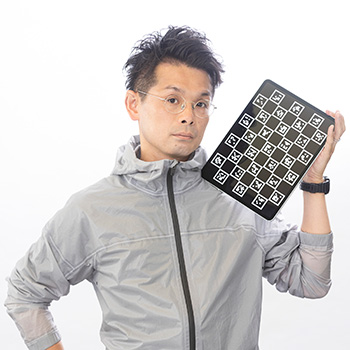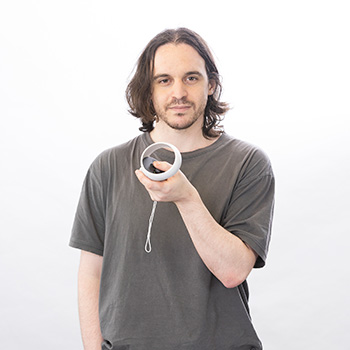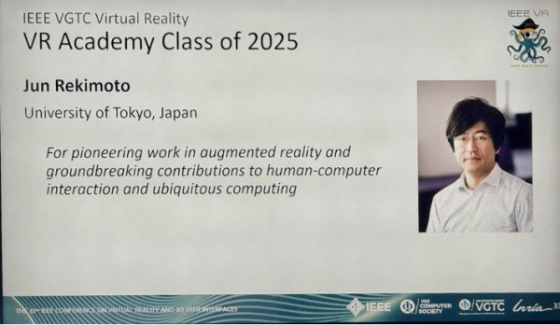Transboundary Research
Transboundary Workshop on Human Augmentation
人とコンピュータが融合することで生み出される“新たな人間性“に着目し、コンピュータ科学と人間科学の両側面からのアプローチを試みる「Cybernetic Humanity」の探求を行う笠原研究員。現在はOIST(沖縄科学技術大学院大学)にて「Cybernetic Humanity Studio」を開き、研究を進めています。2024年6月24日には、昨年と同じく公開セミナーとオープンラボが行われました。
Transboundary Workshop on Human Augmentation
本イベントは、人間拡張とヒューマン インタラクションの分野の研究者間の交流を促進することを目的として、OIST のビジティング プログラム (TSVP)、The Special Interest Group on Human Augmentation (SIG-HA)、Cybernetic Humanity Studio (OIST – ソニーCSL) の主催で開催されました。
公開セミナーは、研究担当ディーンオフィス(ODoR)のニコラス・ラスカム教授によるプレゼンテーションから始まりました。OISTの運営方針や、国内外の大学・研究機関とのネットワーク形成、独自の研究支援グラントやTSVPの説明など、多岐に渡る取り組みを紹介し、また本イベントの意義も語ってくださり、素晴らしい幕開けとなりました。
続いて、栗田 雄一博士による講演 “Physical Human Machine Interface for Human Augmentation”では、栗田先生の取り組む様々な人間拡張にまつわる研究が紹介されるとともに、社会実装の取り組みとして、リハビリ現場での応用や、企業などで実際に活用されている事例、超人スポーツへの展開なども紹介されました。
そののち、TSVP Visiting ScholarのPedro Lopes博士による講演”Integrating Interactive Devices With the User’s Body“では、コンピューターを活用して、ユーザーの身体を認知的にだけでなく物理的にも拡張する研究に取り組むペドロ氏が、Computer Deviseの歴史を紹介しながら、ウェアラブルデバイスに代わる次のインターフェースがどのようなものになるか議論がなされました。また、これまで笠原研究員と共同で取り組んできた人間拡張と主体感の研究に関しても紹介されました。
同じくTSVP Visiting Scholarの白土 寛和博士による講演”Social Dynamics of Human-AI Hybrids“では、主に人間とAIが共存した中での社会的規範に関する2つの研究に焦点を当てて紹介されました。1つは、カラーコーディネーションゲーム(集団において隣り合う人とは違う色を選択する必要のある協調ゲーム)に関するAI Agentが与える影響に関する研究、もうひとつは白土氏が笠原研究員と取り組む半自動運転(自動操縦アシスト機能や自動ブレーキアシスト機能)に関する協調実験に関する研究が紹介され、AIによるサポートが社会的協調ダイナミクスを根本的に変え、個人と集団の利益のバランスに影響を与える可能性についての議論が展開されました。
その後、笠原研究員によるOISTでの研究活動についての紹介とその後に続く自身の研究紹介オープンラボの紹介が行われました。これまでのCybernetic Humanityを基軸にした研究トピックに加え、OIST内でのコラボレーション研究に関しても紹介されました。
その後、OISTのTom Froese准教授によるクロージングと続きました。トム氏により、HCI(人間とコンピュータの相互作用)を用いた人間の能力拡張について、適応行動、人間の思考など多角的な視点での考察を述べられ、5時間を超える白熱したセミナーが終了しました。
このセミナーの中で、笠原研究員は今回のイベントについて以下のように述べました。
「研究戦略の重要な点の一つに、実際に研究を体験化し社会へ投げかける循環が重要であると考えています。私は人とコンピュータの融合をもたらす新しいシステムを構築し、それらを実際に体験として社会へ投げかけ、そこから得られた問いを研究を通じて明らかにする、そうした循環を重視しています。研究を多様な社会に照らし合わせ、人々がどのように行動し、どのように感じているかを観察分析することで、実際に問うべき多くの研究課題を得ることができるのです。ですから、私は実際にその循環をこの場所で生むべく、様々な研究者の方々の素晴らしい研究講演とオープンラボを組み合わせた本日のこのイベントを開催しようとしました。」
OISTのTSVPでは、あらゆる科学分野から優れた研究専門家を招くことで研究者や学生を含めた活発な交流が起こる事を目指しています。実際にTSVP Talk2本を含む本セミナーでは、多様なバックグラウンドを持つ聴衆が多く参加し、どの講演でも活発な質疑応答が行われました。

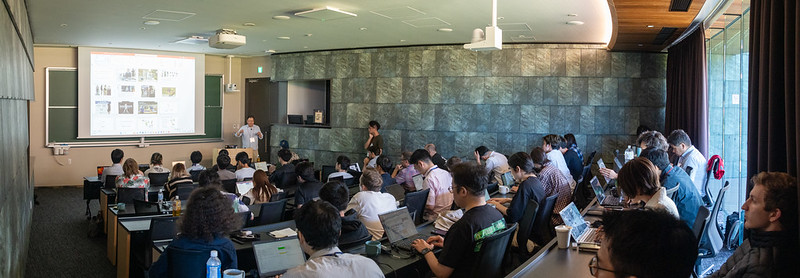
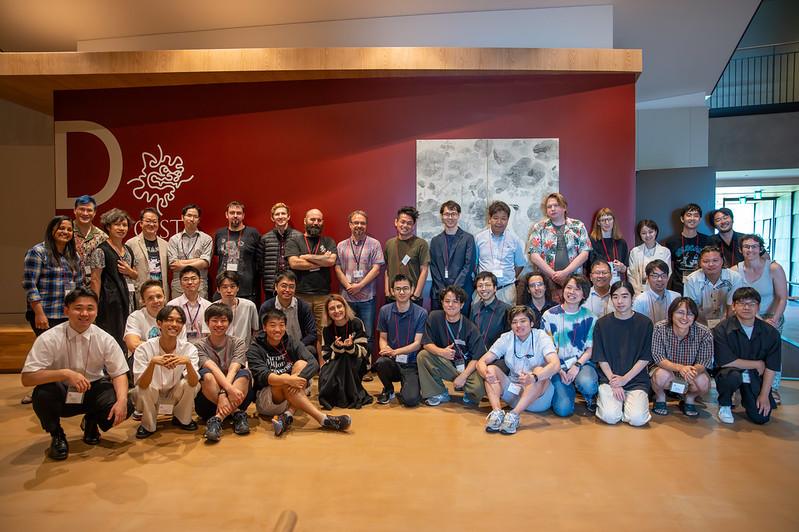
Photo: OIST/Jeff Prine
Cybernetic Humanity Studio Open Lab
オープンラボでは、実際に笠原研究員が研究を行っている研究室にて行われました。10の未発表案件を含む14のデモが展示されました。
参加者はそれぞれ自由に体験し、自分の知覚と実際の体験の変容や、自身のアイデンティティを問うような実体験に驚きの声を上げながら笠原研究員の研究を体感することができました。メンバーと参加者の間では、白熱した意見交換がなされていました。
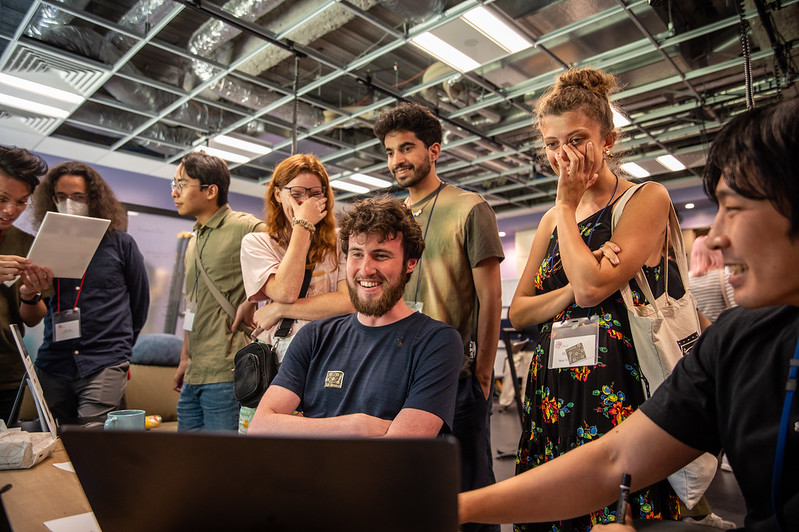
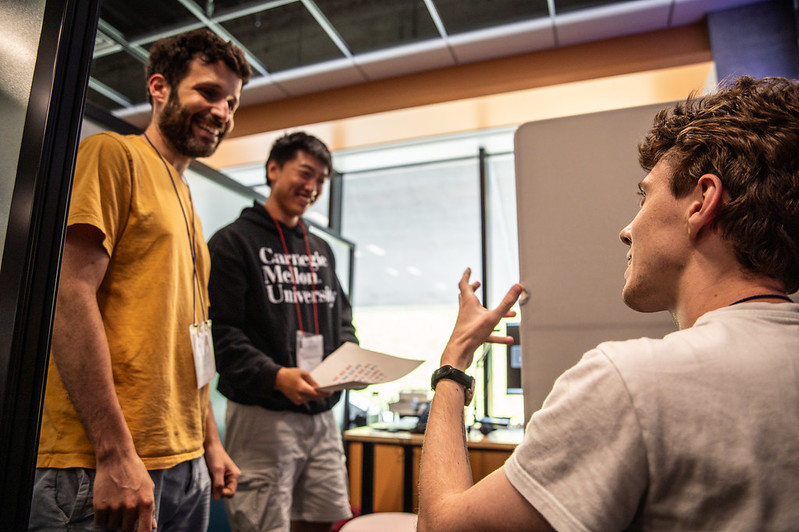
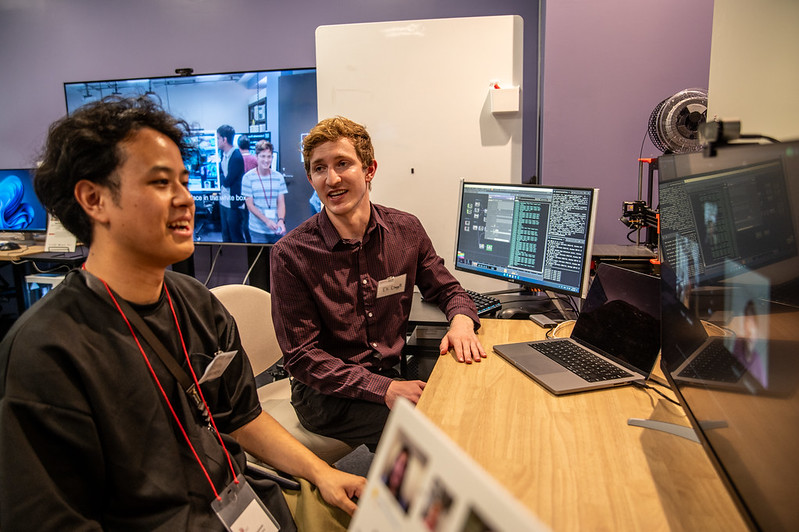
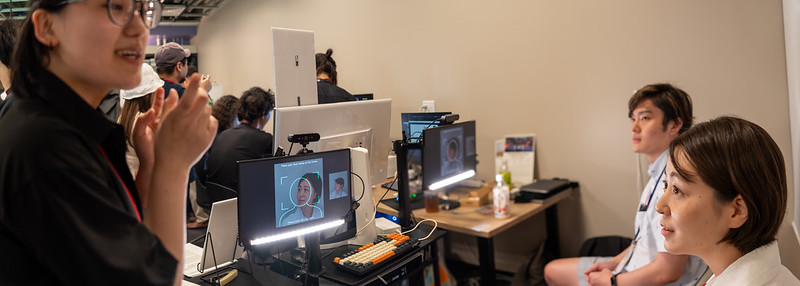
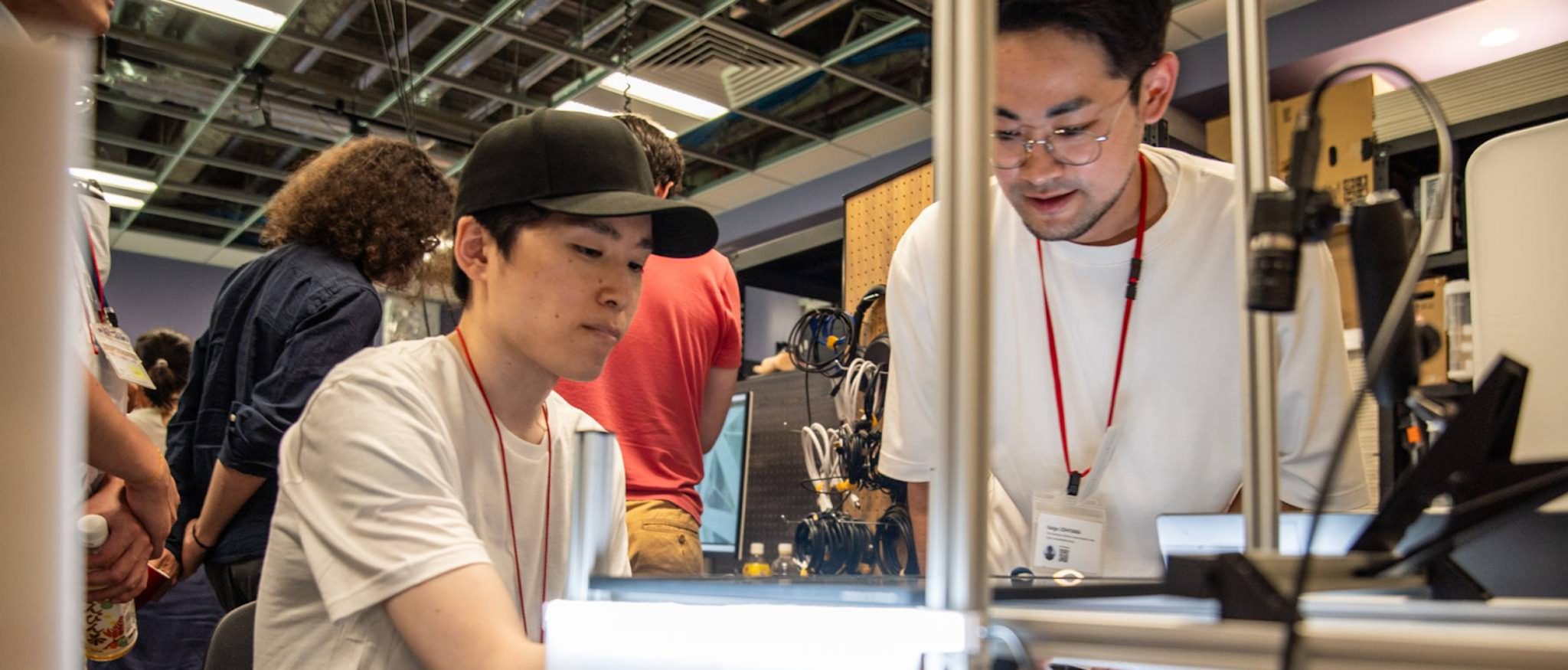
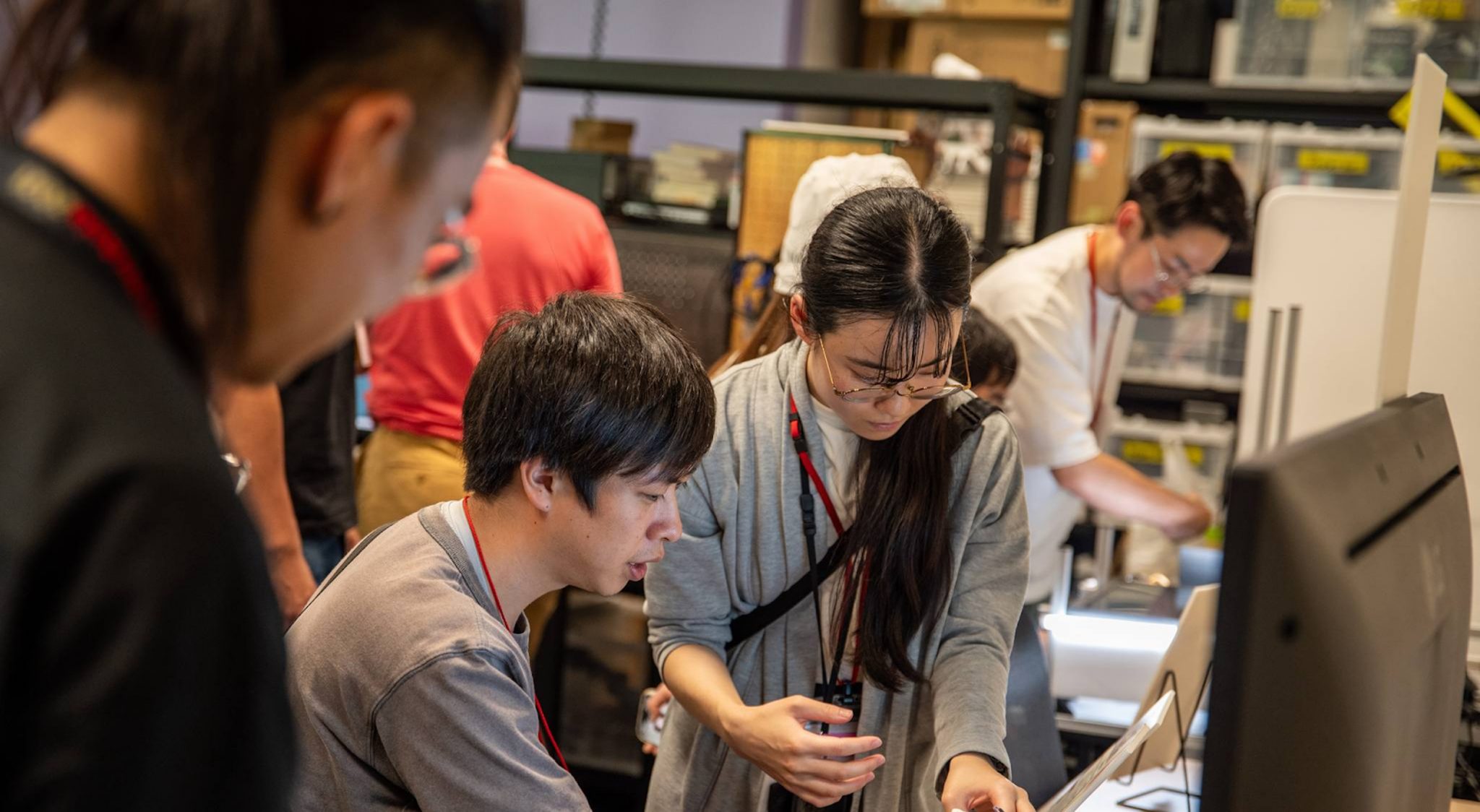
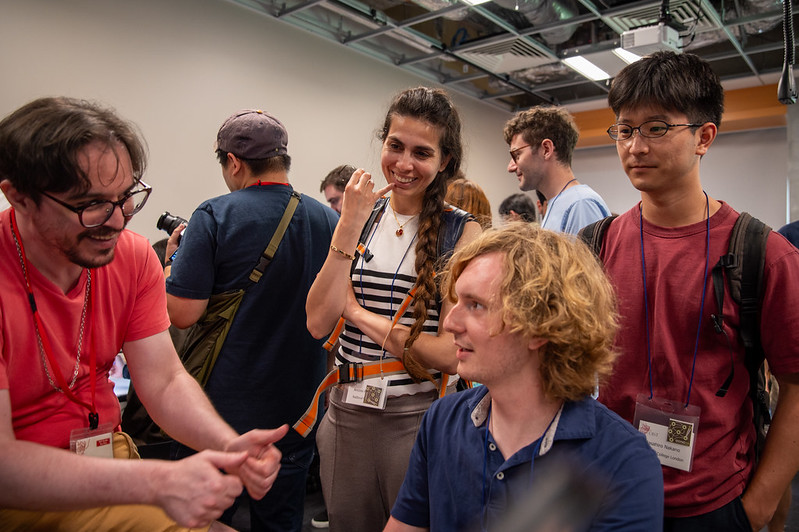
Photo: OIST/Jeff Prine
Cybernetic Humanity Projectメンバーそれぞれが、最新の研究デモンストレーションを行い、参加者と活発な議論を交わしました。
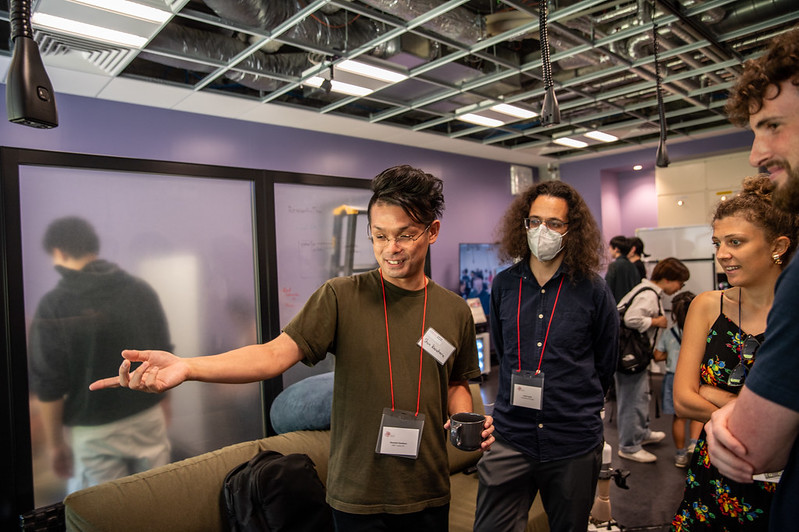

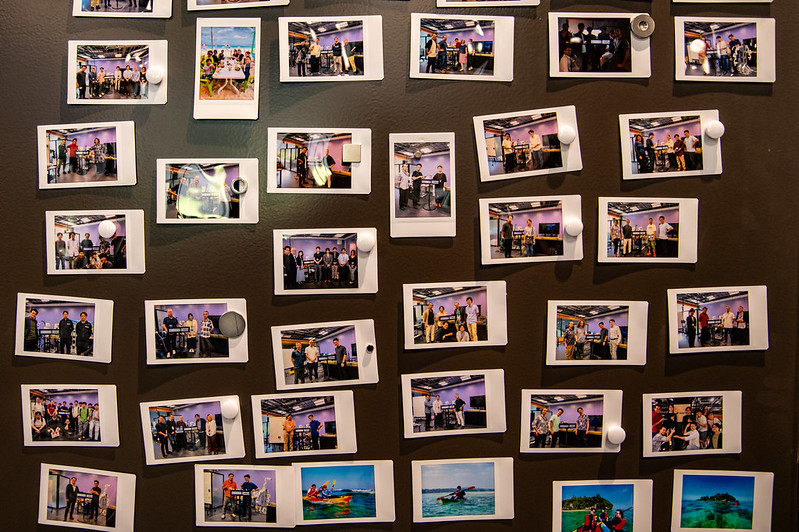
既に多くの人がCybernetic Humanity Studioを訪れており、笠原研究員と対話を重ねています。今後更なる交流とそこから生まれる研究成果が期待されます。
オープンラボにも多くの人が参加し、休憩時間等も含めて活発な意見交換が行われました。
本イベントを終えた笠原研究員は「今年2回目となるセミナーとオープンラボは、様々な分野の研究を相互に繋ぎ、相互に越境をする、Cybernetic Humanity Studioが目指す研究の方向性をより明確に示せた非常に実りあるものとなりました。この素晴らしい機会の実現に際してOISTと日本VR学会 SIG-HAに大変感謝致します。この場で生まれた、コンピュータ科学と人間科学の様々な繋がりが、Cybernetic Humanity Studioのみならず研究コミュニティ全体に資することを期待しております。」と語りました。
“Photo: OIST/Jeff Prine”

Related News
Conversational Agents on Your Behalf: Opportunities and Challenges of Shared Autonomy in Voice Communication for Multitasking
